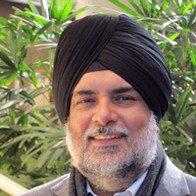Dear Reader
In September 2014, it took the Supreme Court of India to get the government to set aside a 3% reserved quota in state and central government jobs for the 40 million strong differently abled community of Indian citizens. The government did not let this happen without a fight and the judge had to actually tell the Additional Solicitor General that these people were more deserving for government jobs than any others.
This kind of reservation I understand, but what I don’t comprehend is the recent protest by the reasonably well-off community of the PatidarPatels of Gujarat who are demanding reservation for their young hale and hearty clan members. It seems that quotas have become an end in themselves. The effects of earlier reservations have not been studied in any great detail. To me the lives of the downtrodden backward classes have not improved in any significant way, if we were to measure the associated costs against the accrued benefits. We also need to ask if reservation created a new segment of upper class SC/ST and OBC groups who are now insensible to the interests of their less fortunate caste members.
The nation as a whole needs a meritocracy with excellent teachers, doctors, and administrators, and not average or below average people performing these functions to deliver below par services back to its citizens. Perhaps ours is the only nation in the world where caste rivalry is brought into play time and again by politicians to keep India in a state of constant turmoil and thus remain far from becoming developed.
In the present case of Gujarat, the PatidarPatels account for 15% of the population of the state and their leader is just 22 years of age, a commerce graduate and running his own business. Now, if a young, able bodied and healthy person leads an agitation that in effect is asking for crutches from the government for its community members by way of job reservations, then only God can help us! What is going wrong with us? Why are we not focusing on the bigger issues such as raising the number of educational institutions and hospitals or raising food production? Why are we always clamouring to stake our claims on public resources and jobs? Why are we always looking for the easy way up?
With the private job market actually shrinking, not as many jobs are being created as the number of our young citizens who are coming of age. We should have thought of this problem long ago, when the rate of our industrial growth began shrinking while our population grew unbridled. Ever since the debacle that greeted Sanjay Gandhi when he rolled out his population control measures, successive governments have failed to list any population control measures in their election manifestos.
In this issue, for the first time, we discuss the impact that 4G mobile telephony is going to have on the safety and security industry in India. Mobile broadband is likely to change the way remote surveillance works.
Till we meet next month, stay safe!
Cheers & Happy Reading
G B Singh
Email: editor@securitytoday.in
Follow me on @EditorGB
Connect with me on Linkedin





